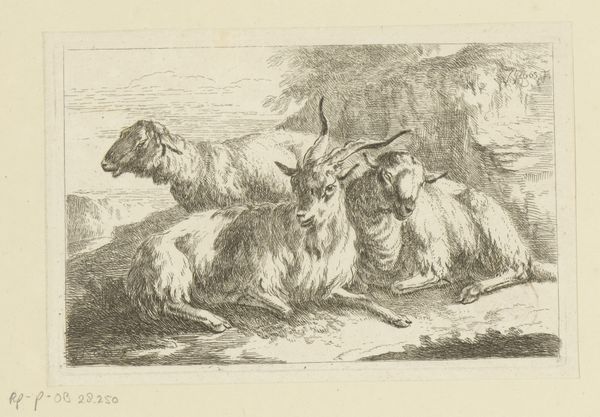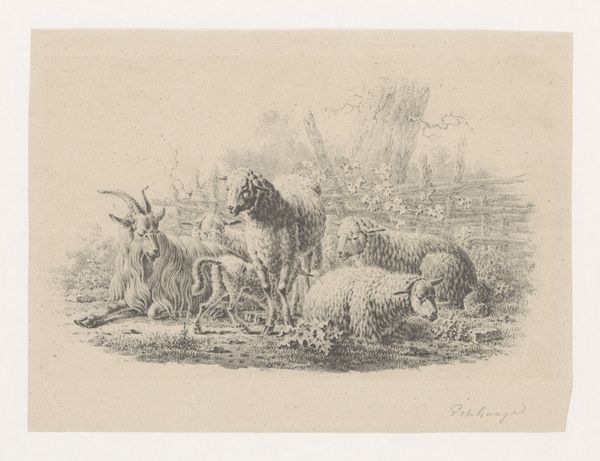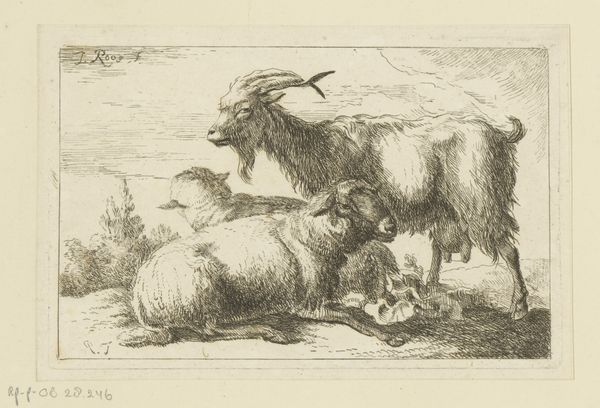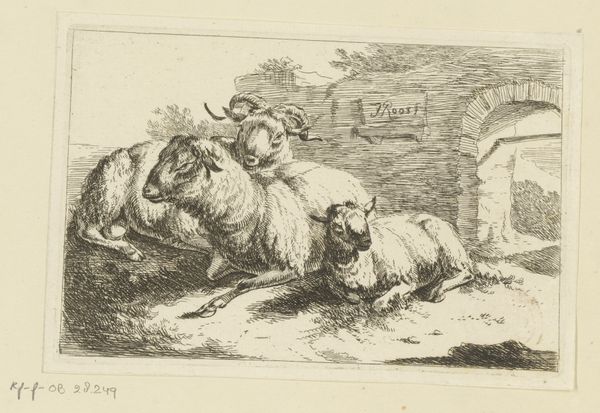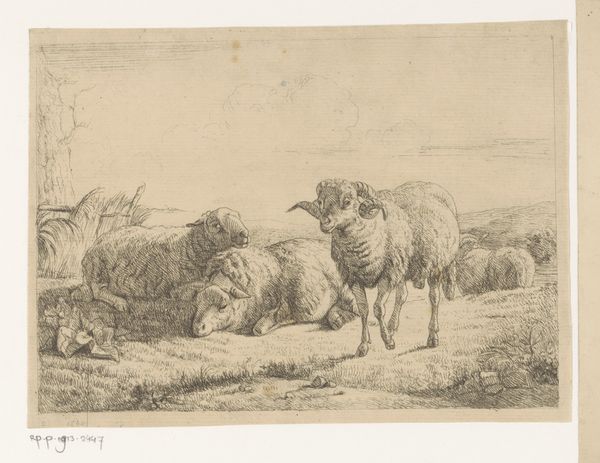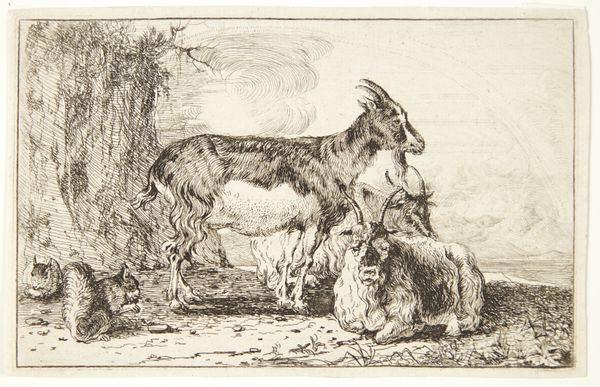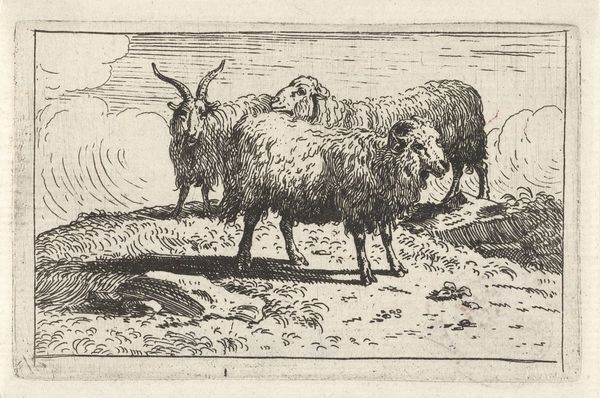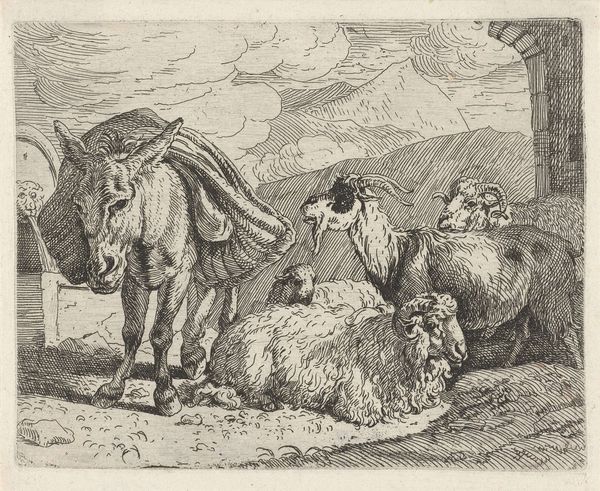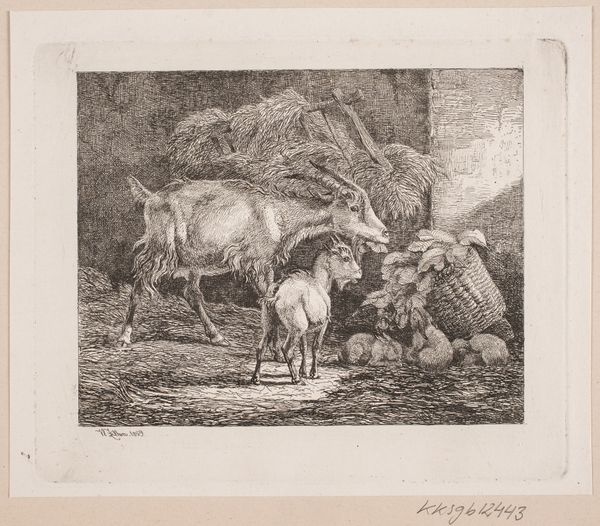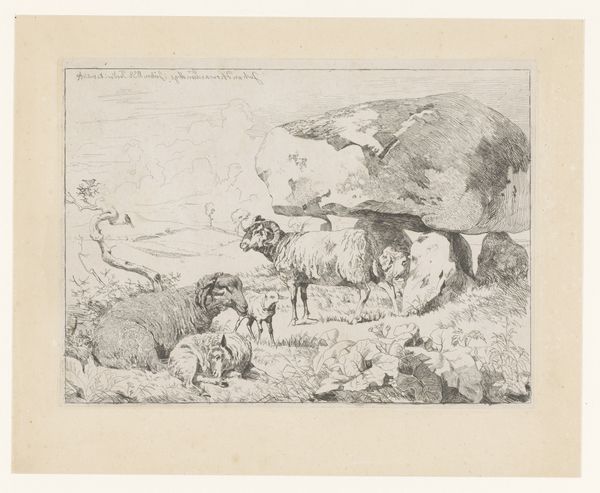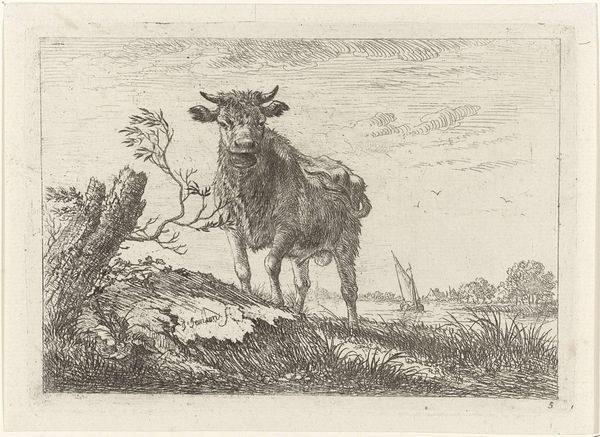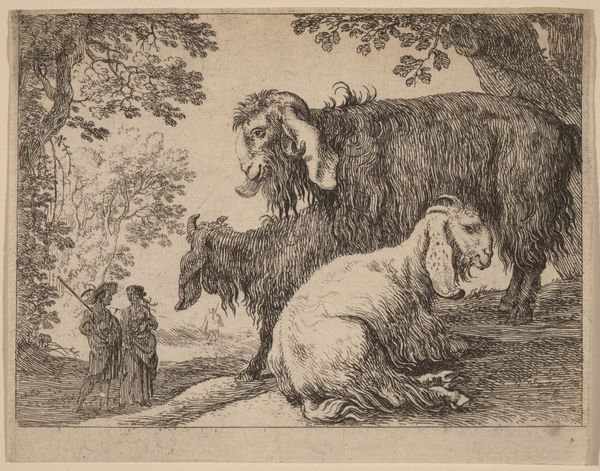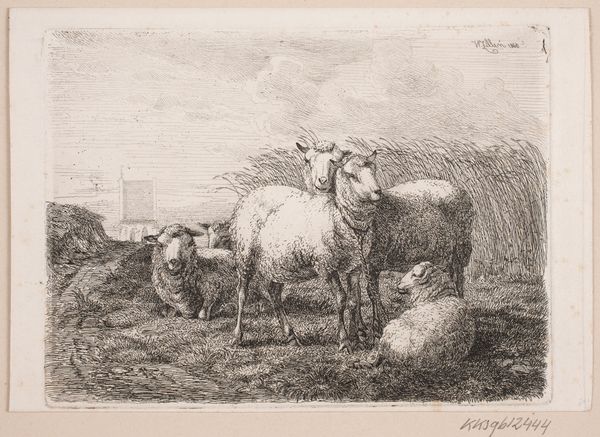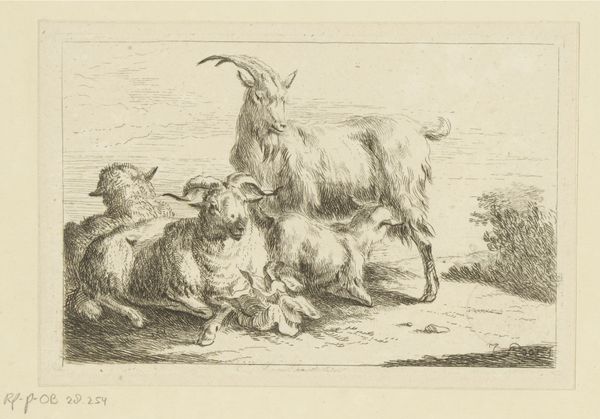
print, etching
#
animal
# print
#
etching
#
landscape
#
genre-painting
Dimensions: height 147 mm, width 201 mm
Copyright: Rijks Museum: Open Domain
Gerard van Nijmegen made this print of two goats with etching, a popular printmaking technique in the 18th century. The image presents us with a pastoral scene of goats resting, seemingly in a farmer's field, set against a backdrop of trees and what appears to be a simple structure. Created in the Netherlands, this artwork reflects a growing interest in rural life and agriculture that emerged during the period. The print also subtly touches on the economic foundations of Dutch society at the time, where agriculture played a crucial role. The detailed depiction of the goats, complete with their bells, suggests a certain level of care and attention that the Dutch may have afforded their livestock. The work also raises interesting questions about the institutions of art, and who has access to the art world. Understanding this work requires not only an appreciation of its artistic qualities but also an examination of the cultural, economic, and social factors that influenced its creation. This kind of historical understanding can be achieved through careful examination of archival records and other sources.
Comments
No comments
Be the first to comment and join the conversation on the ultimate creative platform.
